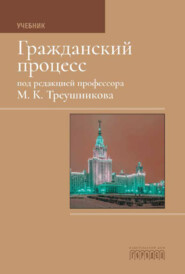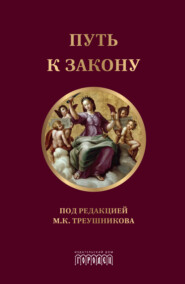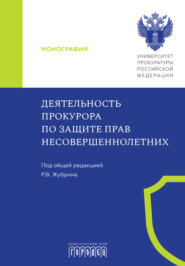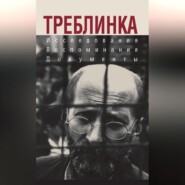По всем вопросам обращайтесь на: info@litportal.ru
(©) 2003-2024.
✖
International Short Stories: French
Настройки чтения
Размер шрифта
Высота строк
Поля
The baron was somewhat taken by surprise at this, but, with his usual presence of mind, he immediately set himself to derive such profit as he might from his guardian's extravagant access of affection.
"Yes, my dear Bach," he replied, "yes, I should be free for the reason you mention, and by every right, but where is the man who will assist me to escape from these walls?"
"Here, baron!" said the lieutenant. "You shall regain your freedom as surely as my name is Bach."
"Oh, I believe in you, my worthy friend," cried Trenck; "you will keep your word."
"Wait," resumed Bach reflectively. "You cannot leave the citadel without the assistance of an officer. I should compromise you at every step. You have just seen what a hot-tempered scatterbrain I am. But I have in mind one who admires you profoundly. You shall know who he is tonight, and together we will set you at liberty."
Bach did, in fact, redeem his promise. He introduced Lieutenant Schell, who was to be Trenck's companion during their arduous flight into Bohemia, into the prisoner's cell, and himself obtained leave of absence for the purpose of securing funds for his fellow conspirators. The plot was discovered before his return and Schell, warned of this by one of the governor's adjutants, hastened the day of their flight.
In scaling the first rampart, Schell fell and sprained his ankle so severely that he could not use it. But Trenck was equal to all emergencies. He would not abandon his companion. He placed him across his shoulders, and, thus burdened, climbed the outer barriers and wandered all night in the bitter cold, fleeing through the snow to escape his pursuers. In the morning, by a clever ruse, he secured two horses and, thus mounted, he and his companion succeeded in reaching Bohemia.
Trenck directed his course toward Brandenburg where his sister dwelt, near the Prussian and Bohemian frontiers, in the Castle of Waldau, for he counted upon her assistance to enable him to settle in a foreign land where he would be safe.
The two friends, reduced shortly to the direst poverty, parted with their horses and all but the most necessary wearing apparel. Even now, though in Bohemia, they were not free from pursuit. Impelled one night, through hunger and cold, to throw themselves upon the bounty of an inn-keeper, they found in him a loyal and true friend. The worthy host revealed to them the true identity of four supposed traveling merchants, who had that day accosted them on the road and followed them to the inn. These men were, in fact, emissaries from the fortress of Glatz who had attempted to bribe him to betray the fugitives into their hands, for they were sworn to capture Trenck and his companion and return them dead or alive to the enraged governor of the fortress.
In the morning the four Prussians, the carriage, the driver, and the horses set forth and soon disappeared in the distance.
Two hours later the fugitives, fortified by a good breakfast, took their departure from the Ezenstochow inn, leaving behind them a man whom they, at least, esteemed as the greatest honor to mankind.
The travelers hastened toward Dankow. They chose the most direct route and tramped along in the open without a thought of the infamous spies who might already be on their track.
They arrived at nightfall at their destination, however, without further hindrance.
The next day they set out for Parsemachi, in Bohemia.
They started early, and a day in the open, together with a night's sleep, had almost obliterated the memory of their adventure at the inn.
The cold was intense. The day was gray with heavy clouds that no longer promised rain, but which shrouded the country with a pall of gloom. The wind swirled and howled, and though the two friends struggled to keep their few thin garments drawn closely about them, they still searched the horizon hopefully, thinking of the journey's end and the peaceful existence which awaited them. To their right, the aspect of the countryside had altered somewhat. Great wooded stretches spread away into the distance, while to the left all was yet free and open.
They had gone about half a mile past the first clump of trees when they noticed, through the swaying branches by the roadside, a motionless object around which several men busied themselves. With every step they gained a clearer impression of the nature of this obstacle until, at last, an expression of half-mockery, half-anger overspread their features.
"Now God forgive me!" exclaimed Schell finally, "but that is the infernal brown traveling carriage from the inn!"
"May the devil take me!" rejoined Trenck, "if I delay or flee a step from those miserable rascals."
And they strode sturdily onward.
As soon as they were within speaking distance, one of the Prussians, a big man in a furred cap, believing them to be wholly unsuspicious, called to them:
"My dear sirs, in heaven's name come help us! Our carriage has been overturned and it is impossible to get it out of this rut."
The friends had reached an angle of the road where a few withered tree branches alone separated them from the others. They perceived the brown body of the carriage, half open like a huge rat-trap, and beside it the forbidding faces of their would-be captors. Trenck launched these words through the intervening screen of branches:
"Go to the devil, miserable scoundrels that you are, and may you remain there!"
Then, swift as an arrow, he sped toward the open fields to the left of the highroad, feigning flight. The carriage, which had been overturned solely for the purpose of misleading them, was soon righted and the driver lashed his horses forward in pursuit of the fugitives, the four Prussians accompanying him with drawn pistols.
When they were almost within reaching distance of their prey they raised their pistols and shouted:
"Surrender, rascals, or you are dead men!"
This was what Trenck desired. He wheeled about and discharged his pistol, sending a bullet through the first Prussian's breast, stretching him dead upon the spot.
At the same moment Schell fired, but his assailants returned the shot and wounded him.
Trenck again discharged his pistol twice in succession. Then, as one of the Prussians, who was apparently still uninjured, took to flight across the plain he sped furiously after him. The pursuit continued some two or three hundred paces. The Prussian, as if impelled by some irresistible force, whirled around and Trenck caught sight of his blanched countenance and blood-stained linen. One of the shots had struck him!
Instantly Trenck put an end to the half-finished task with a sword thrust. But the time wasted on the Prussian had cost him dear. Returning hastily to the field of action, he perceived Schell struggling in the grasp of the two remaining Prussians. Wounded as he was, he had been unable to cope single-handed with them, and was rapidly being borne toward the carriage.
"Courage, Schell!" Trenck shouted. "I am coming!"
At the sound of his friend's voice Schell felt himself saved. By a supreme effort he succeeded in releasing himself from his captors.
Frantic with rage and disappointment, the Prussians again advanced to the attack upon the two wretched fugitives, but Trenck's blood was up. He made a furious onslaught upon them with his sword, driving them back step by step to their carriage, into which they finally tumbled, shouting to the driver in frantic haste to whip up his horses.
As the carriage dashed away the friends drew long breaths of relief and wiped away the blood and powder stains from their heated brows. Careless of their sufferings, these iron-hearted men merely congratulated each other upon their victory.
"Ah, it's well ended, Schell," exclaimed Trenck, "and I rejoice that we have had this opportunity to chastise the miserable traitors. But you are wounded, my poor Schell!"
"It is nothing," the lieutenant replied carelessly; "merely a wound in the throat, and, I think, another in the head."
This was the last attempt for a considerable time to regain possession of Trenck's person. But the two friends suffered greatly from hardships and were made to feel more than once the cruelty of Prussian oppression. Even Trenck's sister, instigated thereto by her husband, who feared to incur the displeasure of Frederick the Great, refused the poor fugitives shelter, money, or as much as a crust of bread, and this after Trenck had jeopardized his liberty by returning to Prussian soil in order to meet her.
It was at this period, when starvation stared the exiles in the face, that Trenck met the Russian General Liewen, a relative of Trenck's mother, who offered the baron a captaincy in the Tobolsk Dragoons, and furnished him with the money necessary for his equipment. Trenck and Schell were now compelled to part, the latter journeying to Italy to rejoin relatives there, the baron to go to Russia, where he was to attain the highest eminence of grandeur.
Baron de Trenck, on his journey to Russia, passed through Danzig, which was at that time neutral territory, bordering upon the confines of Prussia. Here he delayed for a time in the hope of meeting with his cousin the Pandour. During the interim he formed an intimacy with a young Prussian officer named Henry, whom he assisted lavishly with money. Almost daily they indulged in excursions in the environs, the Prussian acting as guide.
One morning, while at his toilet, Trenck's servant, Karl, who was devoted to him body and soul, observed:
"Lieutenant Henry will enjoy himself thoroughly on your excursion to-morrow."
"Why do you say that, Karl?" asked the baron.
"Because he has planned to take your honor to Langführ at ten o'clock."
"At ten or eleven – the hour is not of importance."
"No! You must be there on the stroke of ten by the village clock. Langführ is on the Prussian border and under Prussian rule."
"Prussia!" exclaimed Trenck, shaking his head, which Karl had not finished powdering. "Are you quite sure?"
"Perfectly. Eight Prussians – non-commissioned officers and soldiers – will be in the courtyard of the charming little inn that Lieutenant Henry described so well. As soon as your honor crosses the threshold they will fall upon you and bear you off to a carriage which will be in waiting."
"Finish dressing my hair, Karl," said Trenck, recovering his wonted impassibility.
"Oh, for that matter," continued the valet, "they will have neither muskets nor pistols. They will be armed with swords only. That will leave them free to fall bodily upon your honor and to prevent you using your weapon."

















